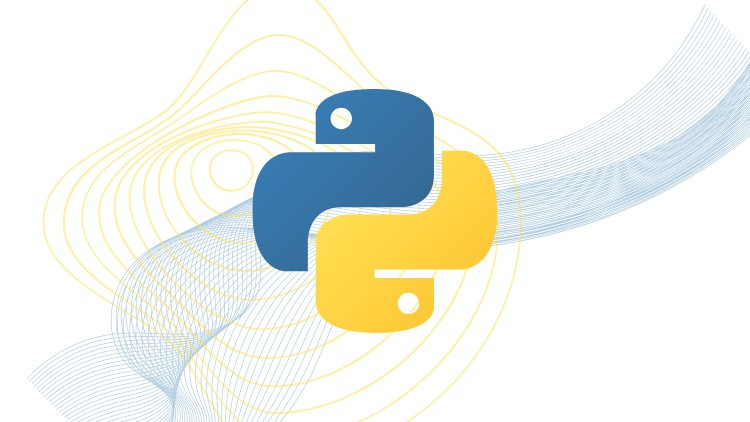Section Overview
No lecture description
Description
AWS Lambda is one of the fastest growing services of AWS!
Join me in this course to learn how you can develop and deploy Python, Node.js or Java Lambda functions using Python and Boto3; manage your serverless functions easily!
This course is part of a series of courses on AWS solutions with Python and Boto3 and now it’s time to implement serverless functions!
AWS Lambda is a cornerstone service for serverless architectures on AWS. You do not manage infrastructure like CPU, memory, OS or patches you name it! All you have to do and worry about is your implementation and code!
Let’s take a closer look at what we’re going to cover in this course step-by-step.
-
In this course, we will start off with what we’ll build throughout the course and what you need to have on your computer to follow along with me.
-
Don’t worry; I’ll explain everything you need very clearly and I’ll show you what you need to install and setup on your computer to work with AWS Lambda. There will be two different sections for Windows and MacOS users. These sections are basically identical and show how you can prepare your computer environment to be ready to work with AWS Lambda! I’ll show you how to install Python, Boto3 and configure your environments for these tools. I’ll also show you how you can create your own AWS account step-by-step and you’ll be ready to work AWS in no time!
-
When we’re done with preparing our environment to work AWS with Python and Boto3, we’ll start implementing our solutions for AWS.
-
First thing we’ll do is to create an IAM Access Policy for our Lambda Functions to access and communicate with other AWS resources like S3, CloudWatch and so on. Once we have it created, we’ll also create an IAM Role for our Lambda Function to execute and run on AWS on our behalf. And as for the most crucial part of this process, we’ll attach the IAM Policy to IAM Role so we will be complete on permissions and roles to run our Lambda Functions!
-
Next step is to develop a Python Lambda function from scratch! We’ll develop a Python function with a proper handler and start implementing the way to develop it to AWS. For that purpose - since AWS is looking for bytes of the source code for Lambda functions – we’ll develop a Utility class where we’ll implement the way to package our Lambda Function first as zip file. Once we do that, we’ll then read the bytes of the file and pass that information to our deployer method. Apart from source code, we will also provide our Lambda function a runtime, name and so on.
-
Once we successfully deploy our Python Lambda function, we’ll check it out on AWS console and verify that its configured as we expect it to be.
-
Next up is the implementation and deployment of a Node.js Lambda function! We’ll follow the same steps again to implement and create our own Node.js Lambda function and deploy it using our genericly-implemented solution for deployment. Once we’ve done that, we’ll again go to AWS console and verify our Lambda function.
-
Java Lambda functions are up next! We’ll launch Eclipse IDE - which is basically the easiest way to create and work with Java Lambda functions – and install AWS Toolkit first. Once we have it, we will create our very first Java Lambda function and then we’ll package it as an executable JAR file using Maven. Next thing to do is to deploy our Java Lambda function and once we do that, we’ll go to AWS console and verify it.
-
Now is time to invoke our Lambda functions and you will see how easy it is to do so! We’ll call our function and parse the response from AWS!
-
Next up is to manage our Lambda function in various ways and that includes Aliasing, Versioning, using Environment Variables, Updating the Source Code and much more! We’ll also learn all the basic CRUD operations we can do against Lambda functions and you’ll again see how easy those are too!
Let’s not lose any more time and jump right into developing and deploying Lambda functions to AWS Lambda!
Requirements
-
Little to no experience with Python
-
Any Python interpreter. Default is fine but I recommend PyCharm
-
An AWS Account - Free Tier Available!
-
General knowledge on AWS would be nice
-
Not necessary but theoretical knowledge on Lambda would be nice!
Who This Course is For
Who wants to learn how to implement Python, NodeJS and Java Lambda Functions
Who wants to learn how to deploy Python, NodeJS and Java Lambda Functions
Who wants to learn how to configure and package Python, NodeJS and Java Lambda Functions
Beginners on AWS who wants to put their theory in practice
AWS Cloud Architect Associate Exam Preppers who wants to practice their theories with real projects
Who wants to learn how to implement Infrastructure-as-a-Code or IaaS on AWS
Who wants to learn how to develop infrastructures on AWS using Python
Who wants to learn AWS Python API or namely Boto3
What You Will be Learn
You'll learn how to develop Python, NodeJS and Java Lambda Functions!
You'll learn how to give necessary IAM Roles and Policies for Lambda Functions!
You'll learn how to configure Python, NodeJS and Java Lambda Functions!
You'll learn how to package and deploy Python, NodeJS and Java Lambda Functions!
You'll learn how to invoke Python, NodeJS and Java Lambda Functions!
You'll be able to implement any sort of infrastructure with Lambda on AWS with Python!
You'll learn how to code against AWS API using Python and Boto3!
You'll be confident to work with AWS APIs using Python for any kind of AWS Resource on Lambda!

Dragon Zap Instructor
Hi, I'm Niyazi Erdoğan. I'm a software engineer and AWS Certified Solutions Architect with over ten years of experience in various fields. I'm living in one of the most beautiful cities in the world, Istanbul. I'm a self-taught programmer and I've been programming since I was in middle-school. My experience ranges from embedded development to server-side and client-side development technologies. I started my career while I was only a student as a Java Developer in healthcare industry as a private contractor. Then I moved in to the largest telecommunication company of Turkey which is Turkcell. After several years and various different positions at Turkcell, I moved in to Portugal and worked for another large telecommunication company for several years with Java technologies. After the telecommunication industry experience and several different experiences, I joined one of the largest companies of its sectors which is Siemens. I currently works at Siemens working with various Java and Cloud technologies Besides my day job, I really enjoy developing software with lots of different technologies.On the other hand, I do love to follow tech conferences and blogs about latest technologies and tools. I also like to read books within or without my field of expertise and love to watch series like Westworld and Game of Thrones. And I make sure that I stay healthy with daily walking, running and workout.


Ask a question
Questions (0)